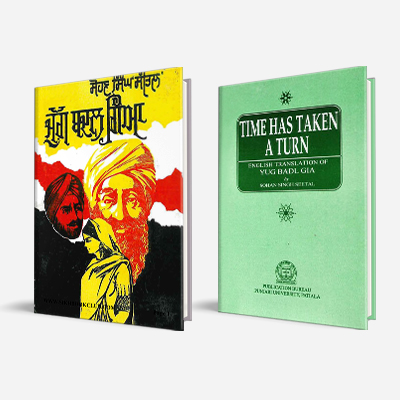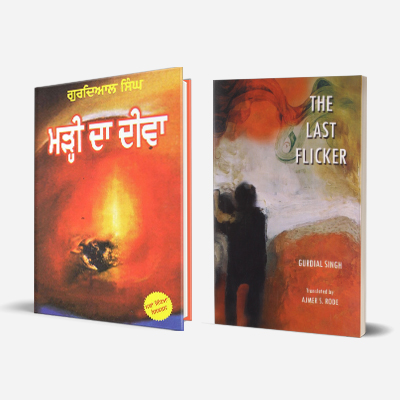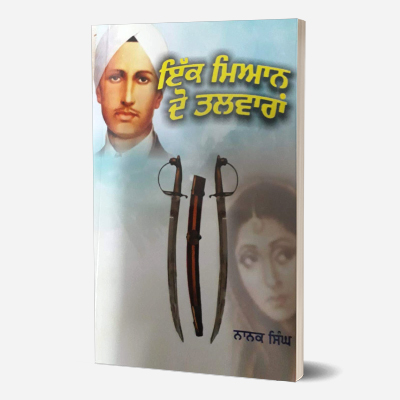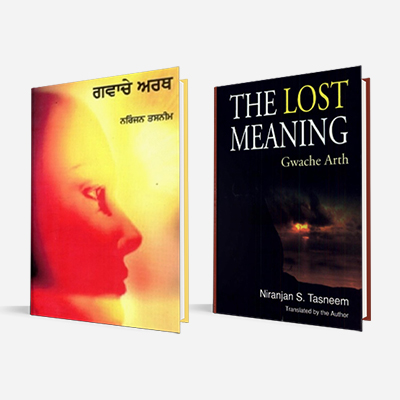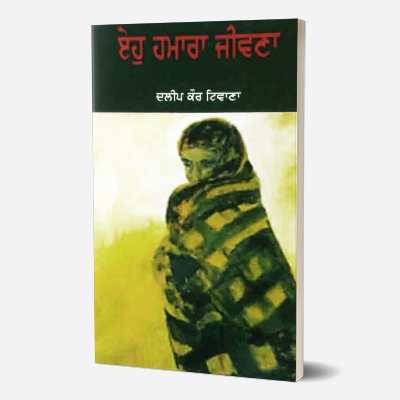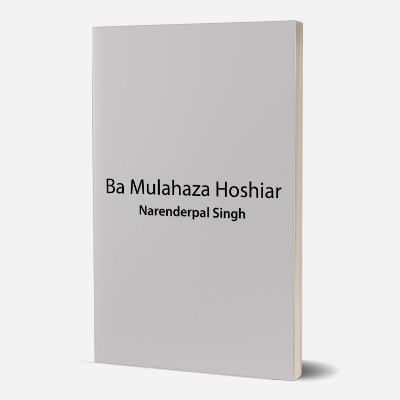Gawache Arth
By Niranjan Singh Tasneem
Translated into English as The Lost Meaning by the author himself for Sahitya Akademi (2006)
The novel depicts the trauma of terrorism in Punjab in the background of the holocaust of communal riots during the 1984 Anti-Sikh violence. This novel is a sequel to Singh’s critically-acclaimed novel Jadon Sawer Hoi (When Dawn Happened) as the protagonist in both these period novels is the same. In the former, there is an irony of situation whereas in the latter there is an irony of circumstances. The primary concern of Gawache Arth is the communal divide of the eighties and the triumph of the cohesive forces of love, harmony and mutual understanding. It won the Sahitya Akademi Award in 1999. Talking about the novel in an interview, Tasneem had said that he tried to write about Operation Bluestar, anti-Sikh pogrom and the lives of Punjabis thereafter in the most emotional and explanatory way possible. He said that he named it ‘Gawache Arth’ because “once came a time when Punjabis lost the meaning of their lives”.
About the Author
Niranjan Singh Tasneem, born in 1929 in Punjab, is a Punjabi novelist. He wrote his first Punjabi novel Parchhawen that appeared in 1996. Earlier, his two Urdu novels, Sogwar (1960) and Mona Lisa (1962), had been acclaimed on both the sides of the border for their unconventional treatment of the man-woman relationship. He was awarded Punjab’s highest literary honour – Punjabi Sahit Rattan – in 2015.
Eho Hamara Jeevna
By Dalip Kaur Tiwana
Rooted in the socio-cultural ethos of the erstwhile princely state of Patiala, Tiwana’s novels addressed questions of loneliness, rootlessness, cultural alienation and the unrecognized longing for an anchoring in the stability of the past. Her writing on strong feminist themes against the backdrop of different caste and economic backgrounds was a significant development in post-Partition Punjabi writing. In Eho Hamara Jeevna, the protagonist is Bhano, a poor woman belonging to a farmer family in the rural areas of Punjab. In her village, women were treated as commodities and sold for very little money. Bhano’s father married her off to Sarban from Moranwalli village. After her marriage, Sarban’s four unmarried brothers and friends sexually abuse and harass her. After Sarban’s death, Bhano’s life becomes more miserable and her father tries to sell her once again. Bhano tries to escape by committing suicide. A man named Narain saves her and accepts her as his wife. Due to the circumstances and patriarchal setup in her society, Bhano fails to fulfil even her simplest goals in life. The novel won the Sahitya Akademi Award in 1971.
About the Author
Named among the few distinguished women litterateurs of contemporary Punjabi literature, Dr. Dalip Kaur Tiwana was a prolific novelist and short-story writer. She has won awards, both regional and national, and is a widely translated author. The first woman lecturer at Punjabi University, Patiala and the first to return the prestigious Padma Shri Award, Tiwana has been described by Kartar Singh Duggal as a writer who was ‘rooted in the soil, her own tradition and folklore, economic exploitation of and the social curbs inflicted upon the other sex in society in the Punjab.’ Some of her distinguished literary works include Peele Patteyan Di Daasta, Nangey Pairan Da Safar, Duni Suhava Bagh and many more.
Also read
Lang Gaye Duniya
Translated into English as Gone are the Rivers by Bhupinder Singh and S.C. Narula
First published in Punjabi in 1990, Lang Gaye Duniya was translated as Gone are the Rivers by Bhupinder Singh and S.C. Narula. Interweaving social history and ethnography and fiction from a feminine perspective, the novel deals with an offbeat subject that is spontaneous, lyrical and compressed to the point of being a marvel of economy and elegance. It narrates the story of the Royal Counsellor to the Maharajah of Patiala and his family—used to the trappings of court in a feudal society and unquestioning subservience to ‘family honour’—and how overwhelmed by changes in the newly-independent nation, they eventually meet with tragic consequences.
Ba Mulahaza Hoshiar (1976)
By Narenderpal Singh
Translated into English as Trapped (1978)
This novel has the unique distinction of being the most controversial novel in the annals of Punjabi fiction and at the same time, it has been extolled as a sensitive, poignant depiction of the existentialist enigma of man, of his sense of inner void and his outer purposelessness. The main scene of the novel opens up at the Kennedy International Airport where thousands of passengers and visitors got stranded due to heavy snow fall that blocked all air and ground traffic. The hero of the novel, Avtar Singh, is one of the trapped persons in the terminal buildings. The author, through Avtar Singh and other characters trapped in the airport, seems to perceive the lop-sidedness of the materialistic civilization. It won the Sahitya Akademi Award in 1976, following which the Punjab Government imposed a ban on the novel in 1978 on charges of ‘obscenity and hurting religious feelings’.
About the Author
Narenderpal Singh is one of the leading novelists of the Punjabi language. He was born at Kama Bungalow in District Lyallpur (now in Pakistan). Formerly in Defence Services, he retired as Brigadier in 1972. He is known for depicting Sikh history after Bhai Vir Singh. He has to his credit about twenty novels including Baa Mulahaza Hoshiar which won for him the Sahitya Akademi Award for 1976. Starting from romantic novels like Mallah, Sainapati and Untali varhe, Narenderpal Singh has written historical novels like Khanneo tikhi, Valon nikki, Eti marg jana and Ikk sarkar bajhon.
